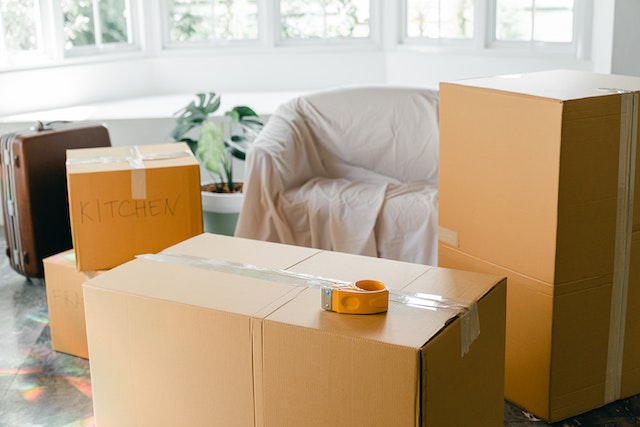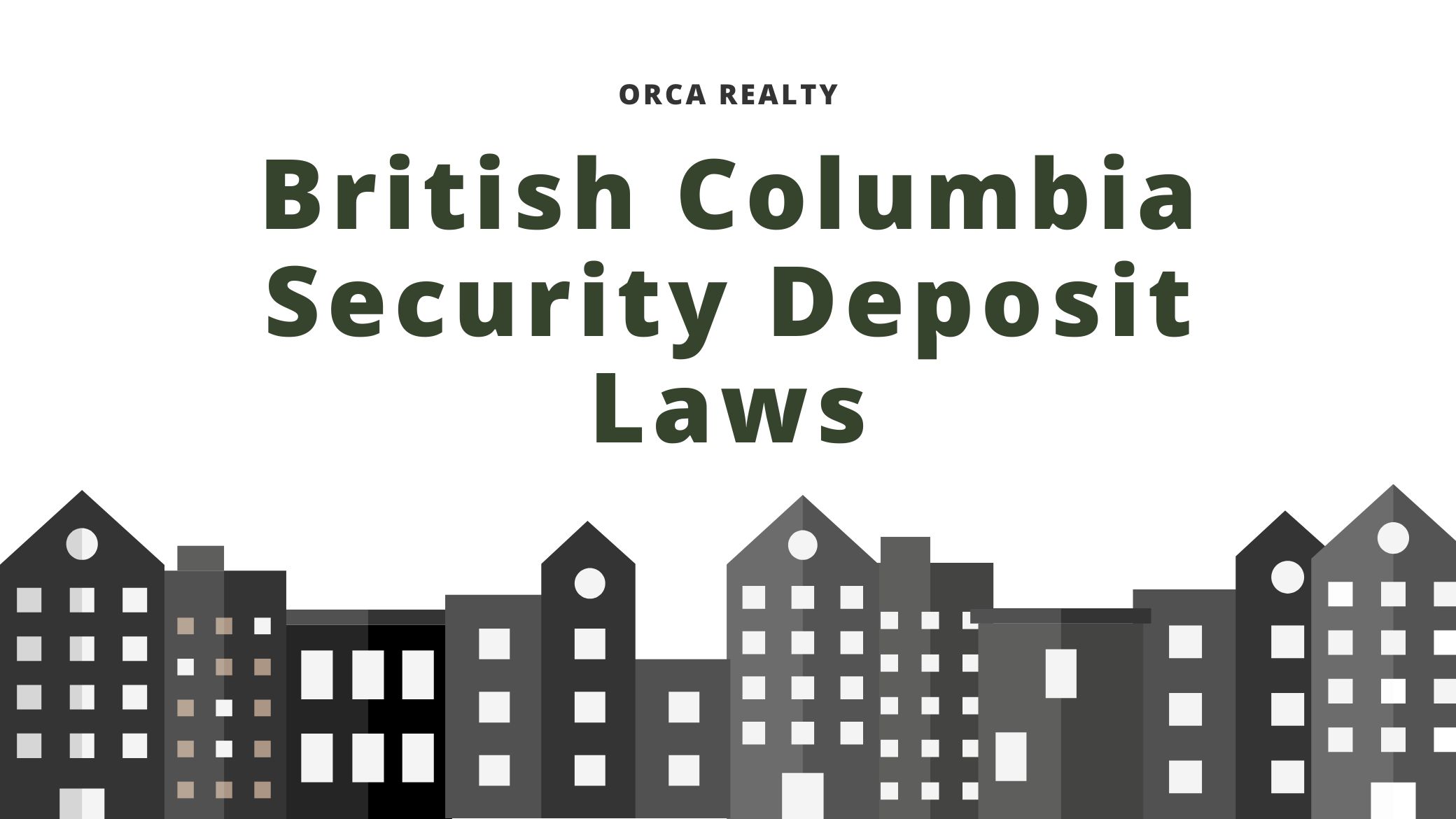The Residential Tenancy Act (RTA) in British Columbia gives landlords the right to ask for a security deposit. As a landlord, it’s your responsibility to hold the deposit in trust as security against potential damage the tenant may cause to the rental unit during their tenancy.
The deposit can help supplement a landlord’s lost rental income from damages or cover unpaid rent.
As a landlord, it’s important to understand your rights and obligations when it comes to handling a tenants’ deposit. The deposit laws apply in various situations, including how much you can charge for a deposit, fees you can and can’t charge, and when you must return the deposit. A landlord should be sure to state these deposit factors in the residential tenancy agreement.
Under B.C. residential tenancy laws, acceptance of a security deposit automatically establishes a tenancy between a landlord and tenant.
The following is everything you need to know as a landlord regarding British Columbia security deposit laws.
How much security deposit can a landlord ask at the start of a tenancy in British Columbia?
There is a limit to how much security deposit a landlord can ask under RTA. Specifically, the deposit amount must not exceed half of the monthly rent. If the monthly rent is, say, $1,400, the landlord must not ask for a deposit exceeding $700.
Charging a deposit that exceeds half the month’s rent would be against the law.
Can landlords ask for an additional pet damage deposit in British Columbia?
Yes, it’s legal for landlords to charge a pet damage deposit in British Columbia. You may choose to charge the pet damage deposit either at the start of a tenancy or during a tenancy if you allow the tenant to keep it.

The pet damage deposit must not exceed the equivalent of half the monthly rent. This pet damage deposit is regardless of the number, breed, and size of the pet. The purpose of the pet damage deposit should be to cover any pet damage to your property. Examples of pet-related damage include:
- Urine stains on the carpet.
- Door/wall scratches.
- Chewed curtains, carpets, and/or walls.
- Damage to appliances and fixtures.
Can landlords collect pet damage deposits for guide or service dogs in B.C.?
This would be illegal as per the B.C. Residential Tenancies Act. Service or emotional support animals aren’t considered as pets under the RTA, which means a landlord cannot collect a deposit for one. What’s more, it’s illegal for landlords to discriminate against tenants with disabilities.
What you can, however, do as a landlord is charge the tenant for any damage their service animal has caused to your property. The damage caused must exceed normal wear and tear.
What responsibilities do landlords have when it comes to tenants’ security deposits?
As a landlord, the RTA obligates you to certain things when it comes to handling a tenant’s security deposit. Some of these responsibilities for the deposit include the following.
- The landlord can terminate the tenancy agreement if the tenant fails to pay the deposit within 30 days of entering a tenancy agreement.
- The landlord must not apply security deposit rules applied elsewhere. For example, require the tenant to pay a deposit for “key money” or deposit on the “first and last month’s rent.”
- The landlord must not ask the tenant for an additional damage deposit if you increase the rent amount.
- The landlord must not automatically make deductions to a tenant’s security deposit.

What responsibilities do tenants have when it comes to paying security deposits in B.C.?
Equally, British Columbia tenants have certain responsibilities when it comes to what they can and can’t do regarding security deposits.
- Tenants have 30 days after entering into a tenancy agreement with a landlord to pay the entire security deposit amount.
- Tenants must not use the deposit as last month’s rent without getting permission from the landlord.
- The tenant apply any overpayment of the security deposits to the landlord towards rent payment.
What fees are illegal for landlords to charge in British Columbia?
As a landlord, there are certain deposit fees that you must not charge a tenant under the RTA. They include the following.
- Must not charge application fees.
- Must not charge a fee greater than $15 or 3% of the monthly rent as moving fees between units in a multi-tenanted building.
- Must not increase parking or storage fees if already included in the rental agreement.
- Must not charge for an access device such as a key or fob, which may be the only way for the tenant to get access to the property.
Do landlords and tenants have to perform a walk-through inspection in B.C.?
Yes, the RTA requires that both the landlord and tenant inspect the property’s condition at the end of the tenancy. This is done by comparing the move-in condition versus the move-out condition. If there is damage, both the landlord and tenant must determine the party that is liable.

If both you and the tenant fail to complete the inspection of the rental unit, you’ll both forfeit any right to the deposit. To avoid this, the landlord must do the following three important things.
- Give the tenant two or more chances to inspect the rental unit.
- Properly fill out the Condition Inspection Report.
- Sign and date the Condition Inspection Report and give the tenant a copy.
Once the two chances have lapsed, the landlord can do the inspection alone and complete the Condition Inspection Report.
What must the tenant do to get back their security deposit?
First and foremost, the tenant must notify you of their intention to move out. They must also provide you with a forwarding address to return the deposit to. All this must be in writing, and must be within one year after the end of tenancy.
After the tenant has done so, you must refund the deposit within 15 days of receiving the forwarding address.
You may be able to withhold part or all of the tenant’s deposit or pet damage deposits in certain situations. Including:
- If the tenant has caused damage exceeding normal wear and tear and has agreed to compensate you for the repair costs in writing.
- If you have applied for dispute resolution and have been awarded an amount by an arbitrator.
- If the tenant fails to provide you with a forwarding address within one year of moving out.
Bottom Line
Requiring tenants to pay a security deposit is important to safeguarding your investment property. Be that as it may, as a landlord in British Columbia, you have certain responsibilities that you must abide by. Failure to do so can attract significant penalties. Including, a fine of up to $5,000, or a ban on being a landlord in British Columbia.
If you have a question or need expert help in managing your B.C. rental property, Orca Realty can help. Get in touch to learn more!




